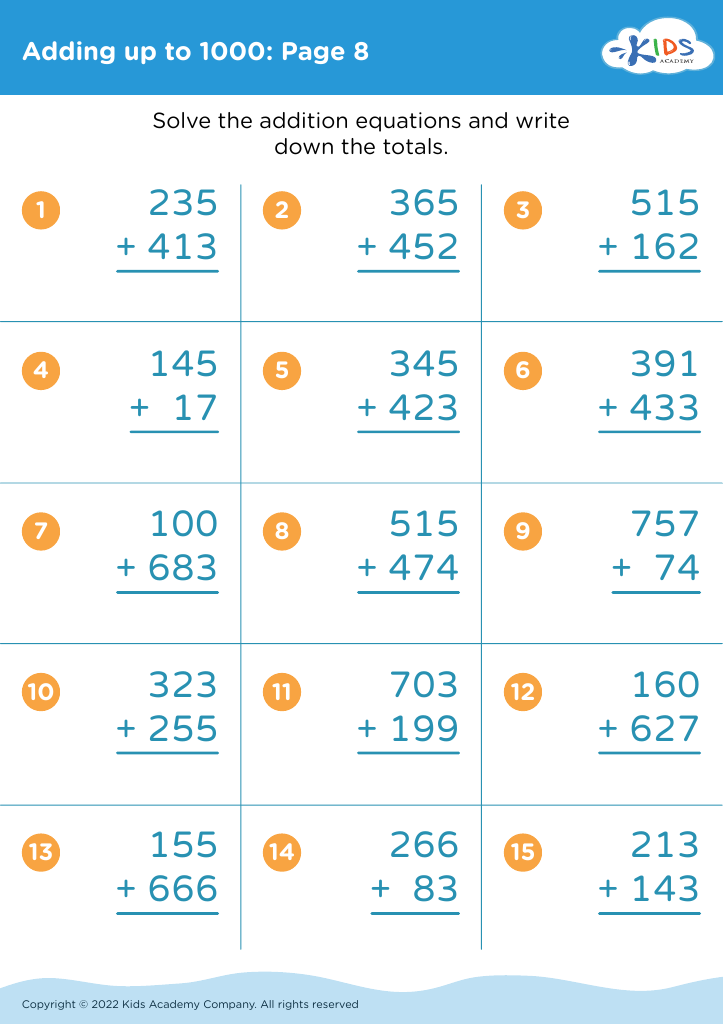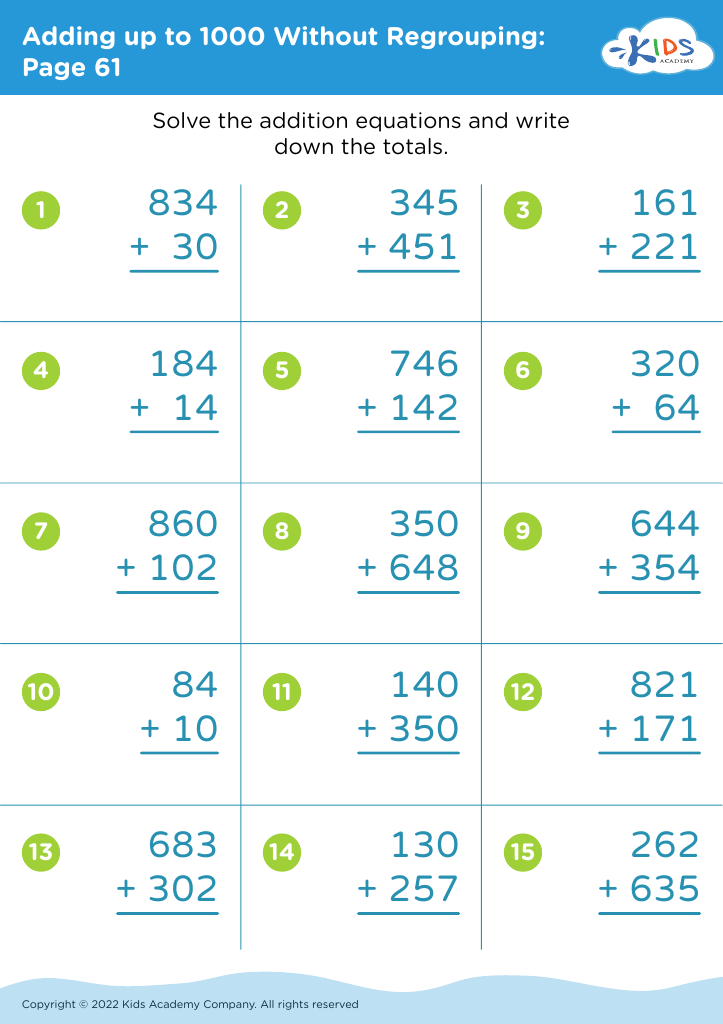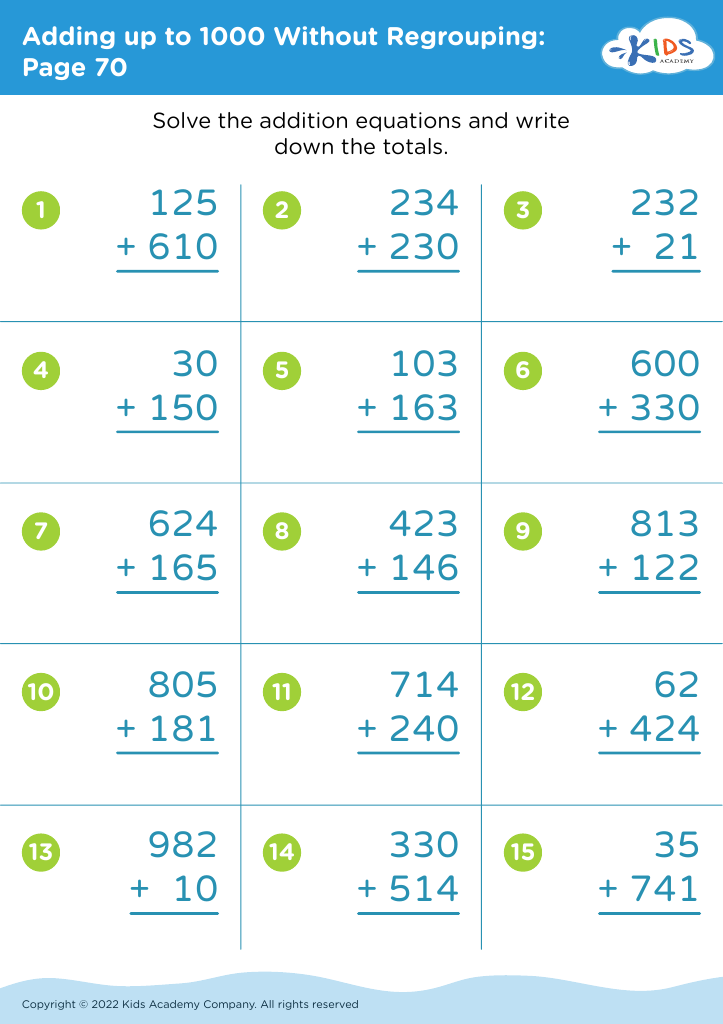Basic Addition Addition Worksheets for 9-Year-Olds
6 filtered results
-
From - To
Explore our engaging Basic Addition Worksheets specifically designed for 9-year-olds! Tailored to boost fundamental math skills, these worksheets make learning addition fun and straightforward. Each sheet offers a variety of exercises that help young learners practice combining numbers effortlessly. Perfect for home or classroom use, these worksheets will strengthen your child's confidence and accuracy in basic addition through interactive tasks and colorful illustrations. Start the exciting journey of mastering addition today with our expertly crafted resources. Visit our page to download and print for free!
Parents and teachers should prioritize teaching basic addition to 9-year-olds because it forms the foundational building block for all future mathematics learning. At this developmental stage, children are transitioning from simple arithmetic to more complex concepts like multiplication, division, and problem-solving. A strong grasp of basic addition helps children build confidence in their mathematical abilities, fostering a positive attitude towards learning.
Moreover, addition is used in everyday life, from calculating the total cost of items to understanding time and measurements. By mastering basic addition, children are better equipped to handle real-world scenarios that require quick and accurate calculations. Additionally, this skill encourages critical thinking and logical reasoning, both essential cognitive skills that go beyond mathematics.
In the classroom, a solid understanding of addition allows children to keep up with the curriculum, preventing feelings of frustration or falling behind. At home, parents who focus on reinforcing these skills can contribute significantly to their child's overall academic success.
Furthermore, developing a strong numerical foundation in the early years can lead to improved performance in not just mathematics but other subjects as well, as many sciences and even humanities rely on analytical skills sharpened by a good grasp of basic math. Overall, caring about basic addition sets the stage for lifelong learning and problem-solving abilities.










.jpg)












